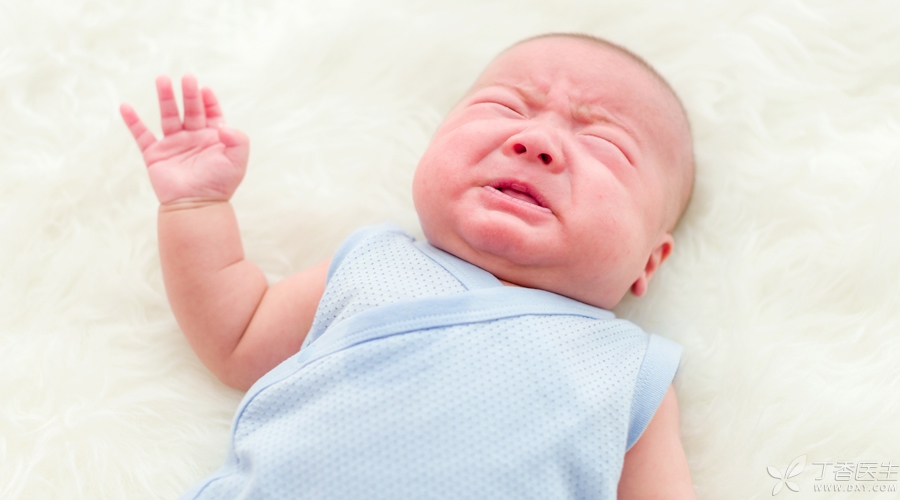 Mothers all know that the most effective way for babies to sleep must be to eat milk.
Mothers all know that the most effective way for babies to sleep must be to eat milk.
As soon as the baby cries, you lie on your side on the bed and your nipples are stuffed, the soft and adorable little monster can quickly appease and fall asleep in your arms, which is simply not too useful.
Originally, I wanted to make myself more relaxed to coax sleep artifact, but it was easy to become [coax sleep curse]:
The baby will never sleep without milk. When he wakes up, he must eat. His mother cannot leave at all.
Frequent waking up at night + milk sleep, easy to form night milk, long night into waking up to eat, sleep and sleep milk sleep seesaw battle.
The baby will never sleep without milk. When he wakes up, he must eat. His mother cannot leave at all.
Frequent waking up at night + milk sleep, easy to form night milk, long night into waking up to eat, sleep and sleep milk sleep seesaw battle.
Is milk sleep really a scourge?

Milk sleep has always been regarded as a scourge, but it has to be admitted that some babies do sleep well.
Does this give a lot of hope to mothers who sleep with milk?
Some mothers also asked me if her baby often sleeps in milk. Does it need to be changed? Next, let’s talk about the fact that milk sleep is temporarily acceptable in what.
Strictly speaking, there are two kinds of milk sleep: [milk sleep] and [milk coax].
- Milk sleep refers to eating a meal of milk before going to bed, finally falling asleep and spitting out nipples. Milk coaxing refers to the baby is not hungry before going to bed, just needs to eat milk to fall asleep, but actually does not eat much.
Compared with milk coaxing, babies who sleep at milk sometimes sleep well, even with little milk at night and regular during the day.

Why do these suckling babies sleep better?
1. First of all, the most important point is that after these babies have finished eating milk, they will spit out their nipples and then go to sleep, instead of falling asleep with them in their nipples.
Nipples are not a necessary consolation for babies to sleep.
2. Secondly, these babies are full before they go to bed. Most importantly, they are full.
There are many babies who sleep with milk because they are too sleepy and tired, but they are not full, so they do not sleep long.
3. Then, although they put the milk before going to bed, these babies have regular schedules during the day. Regular schedules can ensure that enough feeding time is set aside for the baby to eat before going to bed.
4. When waking up at night, the mother feeds the milk at night according to the time, instead of stuffing the milk as soon as she wakes up or makes some noise.
These situations are actually very difficult to control, because not all milk sleep can make the baby work and rest regularly.
Even babies who eat milk and sleep well are prone to problems at a certain stage:
- During sleep retrogression, frequent night milk is caused by frequent night waking but only milk coaxing. After the mother goes to work, the night waking caused by separation anxiety can only be solved by feeding milk. During a period of time after weaning, it is difficult to fall asleep due to changes in the way she falls asleep.
Negative Effects of Milk Sleep on Babies and Mothers

Why don’t you support milk sleep? The biggest problem with milk sleep is that the baby can’t sleep well!
Apart from a small number of milk-sleeping babies mentioned above, most milk-sleeping babies are difficult to sleep well.
Let’s talk about the main reasons why milk does not sleep well.
Most babies who sleep with milk start to sleep after the sleep signal appears. By this time, the baby is already very tired and often does not have enough to eat or even falls asleep after taking a few mouthfuls. However, it is difficult for the baby who does not have enough to sleep soundly. This causes the baby to wake up soon after falling asleep at night and take short naps during the day.
In order to let the baby fall asleep quickly, the mother continued to nurse the baby, and the sleepy baby fell asleep again without enough food. If this continues, the baby will wake up frequently at night and take short naps during the day.
1. Digestive system problems
Baby is very easy to eat milk soon after defecation. Defecation, especially defecation, will interrupt the baby’s nap. Some cleanliness addiction baby must clean up after defecation before falling asleep again. My second girl Xiaoyu is this type of baby.
There is also the milk didn’t beat the hiccups in time after sleeping, causing the baby to wake up by the hiccups soon after sleeping. However, the stimulation of the hiccups made it difficult for the baby to fall asleep again, so we had to have a new round of milk sleep.

2. Night milk is frequent,
Babies who sleep in milk do not accept other ways to coax them to sleep. Although they sleep well at night most of the time, they can only rely on milk sleep to deal with frequent night wakes caused by toothing, environmental changes and sleep retrogression. The final result is that frequent night wakes become frequent night milk.
However, frequent night milk causes the problem of eating unsaturated digestive system, which will lead to the baby waking up more frequently.
3. Only mother can coax sleep,
Milk sleep means that only the mother can coax her to sleep. The frequent night wakes and short daytime naps brought about by milk sleep mean that the mother should be on standby to put on the chest device at any time. The mother’s night and daytime are firmly tied down and there is no free time. This situation can easily aggravate the mother’s anxiety and postpartum depression.
I remember that the eldest brother Coco slept with milk when he was a child. I never went out at night before this situation changed. However, the second child Xiaoyu became very free at night because I did not sleep with milk. Besides consulting with code words, I could also go out to watch a movie and have a meal with friends.
Can I sleep with milk in what?
Although milk sleep has some problems, not all milk needs to be abstained.
The baby in the confinement is inevitable to milk sleep. Because the baby in the confinement has a short awake time and a long nursing time. Often awake time is their nursing time, so the mode of the baby in the confinement is basically to eat, sleep and eat. The sleep duration of the baby at this stage is often related to digestion speed.
How to sleep without milk?

If you want to sleep without milk, the most important thing is to separate eating from sleeping.
In other words, add other activities between eating and sleeping.
After the birth of the month, the baby’s awake time becomes longer, and after eating milk, he can still play for a period of time, which can be guided.
The simple arrangement is to schedule each feeding time during the day after the baby wakes up. Or, at least schedule the feeding time between two naps.
After eating milk at night, belch and hold it vertically for about 20 minutes before falling asleep. This not only reduces the occurrence of spitting milk, but also avoids milk sleep.
How to arrange the rules of eating, playing and sleeping for babies of different ages can be found here.
How can a baby sleep without milk?

For babies 4 months ago, you can try to fall asleep with the help of some comforting methods:
1. Wrap up
When sleeping, wrapping your baby can make your baby sleep more soundly and for a longer time. This trick is effective for babies who do not sleep well and have short naps.
2. White Noise
White noise can be used all night or during the whole nap during the day. When using white noise, it should be kept slightly away from the baby, not on the baby’s bed.
3. Music
Music can make the baby calm down and go to sleep. However, after the baby falls asleep, the music should be turned off. Compared with white noise, it can make the baby sleep more soundly. This melody of music has certain interference to the baby’s sleep.

Step 4: Pacifier
You can use pacifiers to appease your baby during the day, distinguishing whether your baby is hungry or has sucking requirements, and then slowly guiding your baby’s feeding rules. In order to avoid the baby’s over-dependence, it is necessary to limit the use of pacifiers, and it is only recommended to use them when coaxing sleep.
After 4 months, the baby can basically fall asleep completely on his own. Milk sleep needs to be given up in time.
Here, I would like to borrow a mother’s incisive summary: all sleep problems are caused by the inability to fall asleep on one’s own.
For babies who have milk sleep at home, if the baby does sleep very badly, please change as soon as possible.
